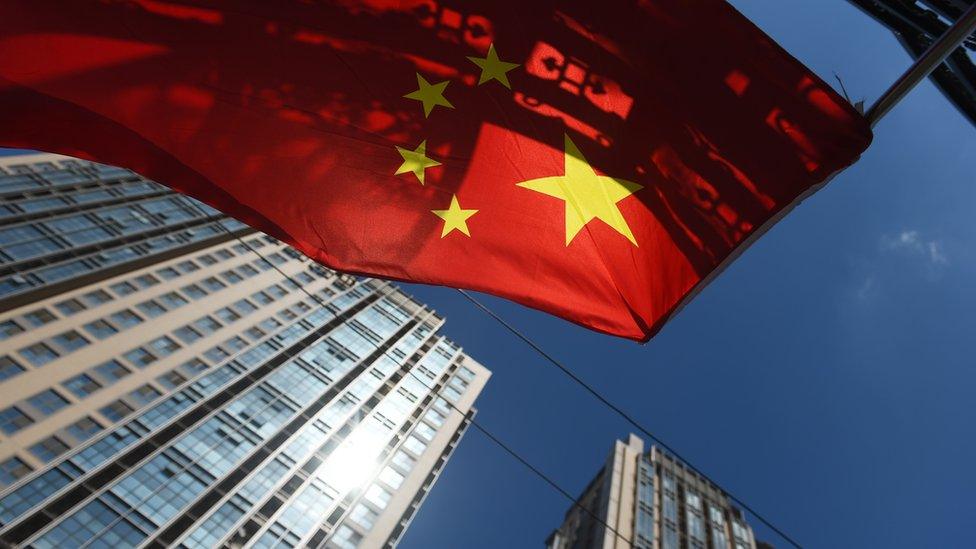Fed's Chinese reason for delaying rate rise
- Published

Hello from balmy Shanghai, where I have not found anyone yet who isn't concerned that a significant economic slowdown is in train.
That said I have only spoken to those directly affected: the boss and managers of a leading appliances manufacturer; and stock-market punters.
I imagine my picture of the economic changes here will take on different shades as I meet others.
But there is relief that the US Federal Reserve has delayed the fateful moment that it ends the era of record low interest rates on dollar debts that it inaugurated after the 2008 crash.
Because as I mentioned earlier this week, when the Fed tightens by raising rates, borrowing becomes more expensive and less available all over the world - such is the massive amount borrowed in dollars inside and outside the US (more than $9tn just since 2009).
Now of course Janet Yellen and her colleagues on the Fed's Open Market Committee did not postpone their first tiny rise in the target rate for the so-called Fed Funds rate out of concerns for the prosperity of Chinese stock-market speculators and businesses.
But the Fed chairman was explicit that interest rates would have been increased if she and the other policy makers were not concerned by fragile market and economic conditions outside the US - or notably how China's difficult-to-precisely-gauge slowdown is acting as a severe brake on growth in emerging economies in general, especially commodity producers and manufacturers dependent on Chinese demand.
Hit from Chinese demand
The point is that a fall in share prices as a result of the depressed global economic outlook, together with an associated rise in the dollar (up 15% over the past year) as investors have shifted capital from flagging emerging markets to a more buoyant US, have already tightened monetary conditions in America.
Or to put it another way, what started as a reduction in China's growth rate from 10% to 7% to well-no-one-really-knows-what-rate - perhaps 3% or 4% over the medium term - has made American investors in shares feel a bit poorer and made it harder for American exporters to generate sales.
And Ms Yellen's point is that this indirect and modest Chinese squeeze on US prosperity is equivalent to the impact of the tiny interest-rate rise she would otherwise have announced yesterday.
If inflation is an incipient problem in the US, which many would deny, then China's slowdown has lessened that threat - by just taking the edge off America's recovery.
Which all makes perfect sense, except for two things.
Investors may worry that if even the Fed is jumpy about China, perhaps the growth hiatus there is even more serious than they fear. And that could have the unwanted effect of making markets even more jittery.
Also a spectacular bubble in global debt markets, pumped up since 2008 by official interest rates being ludicrously lower than long-term norms, will remain dangerously and highly pressurised.
The longer it takes for rates to start rising again, albeit gently, the greater the concern that the bubble will eventually be deflated with an almighty and painful bang rather than a benign whimper.